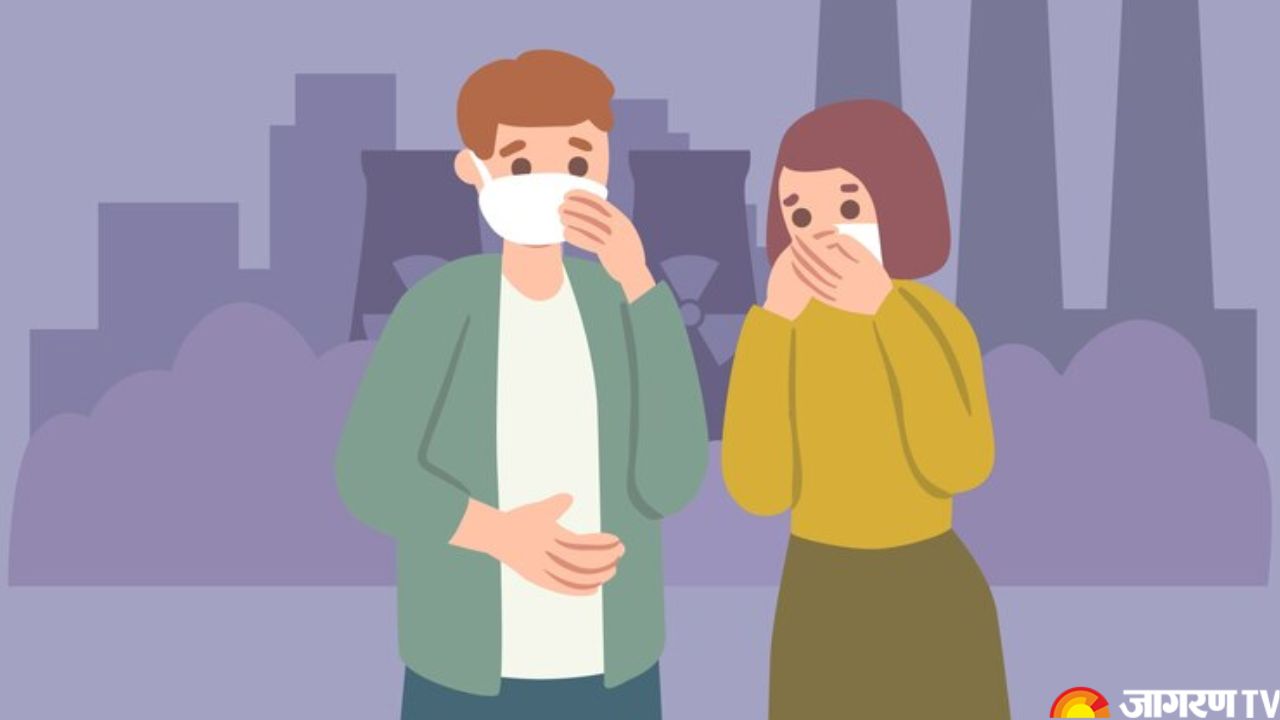Pollution Tips: How to Take Care of Your Body From Dust, Allergies, and Increasing Pollution

Pollution Tips: Pollution has become one of the most common problems in today’s life. Be it due to harsh chemicals, pollutants, dust, and allergens, pollution can affect our health severely, causing major illnesses. In a country like India, where every year air pollution makes new records, the deteriorating level of air quality has increased the concerns of people, finding it difficult to breathe and step out without a mask. After Diwali festivities, the pollution has become worse in many places, including the national capital. Due to this, people are falling ill and significant respiratory problems are rising once again.
Let us find out the simple and effective ways to combat pollution and tips to keep your body clean and healthy.
Air Pollution Side Effects
Air pollution is a serious problem with long-term effects on human health. It affects the body in a variety of ways, including respiratory problems and cognitive impairment.
Respiratory Issues
The respiratory system is directly impacted by air pollution. Pollutants irritate the airways, producing inflammation and resulting in illnesses such as asthma, bronchitis, and chronic obstructive pulmonary disease. Long-term exposure can reduce lung function and raise the risk of respiratory infections.
Cardiovascular Issues
Inhaled contaminants enter the bloodstream, constricting blood vessels and increasing blood pressure. This can result in heart attacks, strokes, and deteriorating symptoms in people who already have heart disease.
Neurological Issues
Pollutants, particularly small particles, can pass the blood-brain barrier, causing inflammation and damage to the brain. This is linked to neurological disorders such as cognitive decline, dementia, and anxiety, with research indicating that air pollution may have a harmful impact on children’s cognitive development.
Skin Issues
Pollutants such as ground-level ozone and particulate matter can harm the skin, hastening aging and causing disorders like eczema and acne. The skin becomes more susceptible to irritation, dehydration, and free radical damage, resulting in premature wrinkles.
Impacts Immunity
Constant exposure to pollutants may weaken the immune system, leaving the body more susceptible to infections and chronic illnesses. This can be especially troubling for youngsters and the elderly, who have compromised immune systems.
Air Pollution Tips For Health
There are several ways to reduce pollution effects on our health:
-
Use apps or websites to monitor air quality on a daily basis. When pollution levels are high, avoid engaging in outdoor activities, particularly intense exercise.
-
Investing in a high-quality air purifier helps to eliminate pollutants, allergies, and hazardous particles from indoor air. This is especially useful for people who have respiratory troubles.
-
During high-pollution days, N95 masks can filter out tiny particles, preserving the lungs and lowering the risk of respiratory ailments.
-
Keep indoor spaces well-ventilated to reduce the accumulation of indoor pollutants. However, avoid opening windows during peak pollution hours, which are often in the morning and evening in urban areas.
-
A diet high in antioxidants helps to counteract the oxidative damage induced by pollution. Include foods like leafy greens, berries, citrus fruits, nuts, and seeds to help protect your cells from damage.
-
Drinking plenty water helps to eliminate toxins from the body. Hydration promotes skin health and helps the respiratory system remove contaminants from the airways.
-
Simple breathing exercises can help strengthen the lungs and increase their capacity. Deep breathing exercises should be avoided outside on high-pollution days, as they enhance pollutant intake.
-
Regular dusting and cleaning at home helps to reduce the accumulation of pollutants indoors. Avoid using strong cleaning chemicals that emit hazardous fumes and instead use natural cleaning solutions.
-
Snake plants, peace lilies, and spider plants all have air-purifying qualities that aid in the removal of contaminants from indoor environments. They promote a better interior environment by releasing oxygen.
-
Smoking and secondhand smoke release additional toxins into the atmosphere. Avoiding any tobacco products is good, especially in high-pollution environments.









